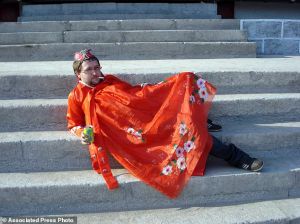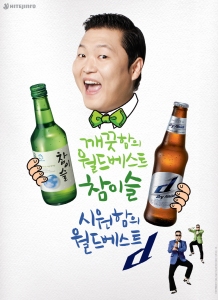A selection of this week’s Korea-related news and commentary
Nuke-free Korea?
Korea’s oldest nuclear power plant, the Kori 1 reactor located in the suburbs of Busan, was permanently shut down last Sunday after 40 years in operation. Commissioned in 1978, the reactor’s initial 30-year life span was extended by ten years in 2008.
Since then, the public mood in Korea has somewhat soured on nuclear power. In March 2011, many Koreans were alarmed by the meltdown at the Fukushima nuclear power

The ruined Fukushima nuclear plant
plant in Japan, which prompted many calls for a review of Korea’s energy policies. And in 2012, the Korean public (and this Busan resident) were again rattled by the revelation that the Gori 1 reactor and others had been supplied with substandard parts backed by forged safety certificates, a major scandal that resulted in several jail sentences.
President Moon Jae-in has vowed to wean the country off nuclear energy, which currently accounts for 22% of South Korea’s power generation, and to move toward renewables and natural gas. Critics of the plan have claimed that Moon’s move may hurt construction companies who have benefited from technology exports in recent decades. In addition to the example of Fukushima and the 2012 scandals, Moon and other proponents point to the potentially catastrophic combination of Korea’s population density, susceptibility to earthquakes, and a long-standing emphasis on cost and efficiency at the expense of public safety as justification for the push to go nuclear-free.
[Mis]adventure Tourism
Otto Warmbier, a 22-year old former student at the University of Virginia, died on Monday after being released from detention in North Korea, where he had been imprisoned since January 2016 for stealing a poster from a Pyongyang hotel. In response, Young Pioneer Tours (YPT), the company that brought Warmbier to North Korea, has announced that it will no longer accept American passport holders for its North Korea tours, while other tour groups that specialize in North Korea trips are expected to follow suit.
According to their website, YPT specializes in “ destinations that your mother would rather you stayed away from”, including Iraqi Kurdistan, Somaliland, and the site of the Chernobyl disaster. Regarding North Korea, the YPT website claims that it is “probably one of the safest places on Earth to visit provided you follow the laws as provided by our documentation and pre-tour briefings,” though it adds that if you do manage to break the law (even an absurdly minor one like stealing a poster), the consequences can be “severe”, or in other words, you’re totally screwed.
YPT also has a reputation for creating tours with a booze-fueled party atmosphere, and

YPT founder Gareth Johnson on a 2009 visit to Pyongyang.
for being somewhat lax in the organization of its tours. If you find yourself questioning the wisdom of a business model that encourages excessive alcohol consumption in a country where breaking the most minor law gets you shipped to a gulag for fifteen years, you’re not alone.
Love and Marriage: An Institute You Can Apparently Disparage
Over the past few years, anecdotal evidence has suggested to me that young Koreans are less willing to get married, or to delay marriage to their 30’s. The hard evidence for this trend is provided by Statistics Korea, who report that Korea’s marriage rate has dropped steeply since 1996, and last year recorded the lowest rate since 1970.
Against this backdrop, I was not quite sure what to make of this recent Korea Herald article, which reports that single-person households are now the most common living arrangement (27.8%) in Korea, while also noting that a majority of the people living alone (59.1%) are married.
It’s long been noted that many couples around the world, like this one in England, have found many benefits to sleeping in separate beds or even separate bedrooms. Are Korean couples taking this marriage-saving trend to the next level by maintaining separate pads, or is it a dark omen that portends a further weakening of the already battered institution? Stay tuned.

Still from the sitcom I Love Lucy. Though Lucy and Ricky’s separate beds were a product of prudish television moral guidelines, today’s viewers may more often see such sleeping arrangements as a crucial component of marital bliss.














